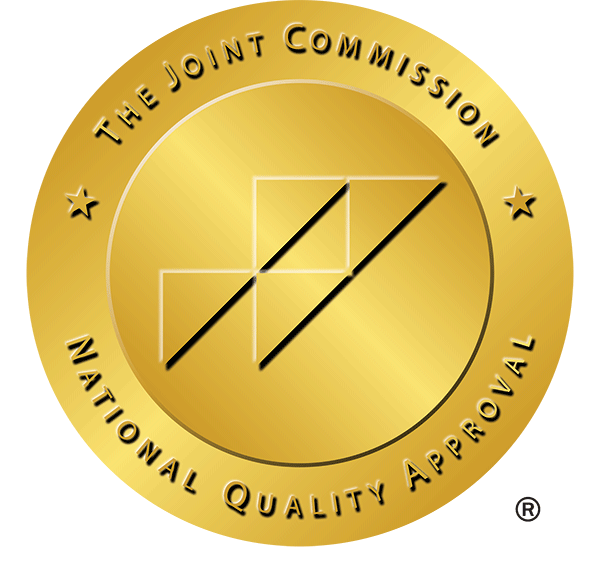Table of Contents
What Is Alcohol Addiction?
Alcohol addiction is a medical condition also called alcohol abuse, alcoholism, and alcohol dependence. If a person is addicted to alcohol, they have an alcohol use disorder (AUD). AUD is characterized by a person’s inability to stop or control their drinking despite negative consequences.
Alcohol abuse is a serious public health crisis in the United States and around the world. In 2019, approximately 26% of adults in the United States reported at least one episode of binge drinking in the past month. In 2019, about 14.5 million people ages twelve and up had an alcohol use disorder.1 The current alcohol addiction statistics are alarming and demonstrate the need for education surrounding alcohol addiction.
For instance, a person diagnosed with alcohol use disorder may stop attending social gatherings, meeting work obligations, or caring for their personal health needs. These are all negative consequences of alcohol use disorder. Additionally, AUD is considered to be a brain disorder within the medical community.2
Is Alcohol Addictive?
Alcohol can be incredibly addictive, and how at-risk a person is for AUD depends on multiple factors. These factors include how much a person drinks, how often they drink, and how quickly the alcohol is consumed. Binge drinking also increases a person’s risk for developing an AUD. Other factors include drinking at an early age, genetics, family history of alcohol abuse, mental health conditions, and childhood trauma.2
What Makes Alcohol Addictive?
How Do You Know If You Are Addicted To Alcohol?
To determine whether a person is addicted to alcohol, there is a range of signs and symptoms you can look for. Behavioral healthcare professionals and primary care providers typically screen for signs of alcohol abuse regularly. It is essential to be familiar with these symptoms to recognize if someone is struggling with alcohol addiction.
Signs of Alcohol Abuse
Symptoms of Alcohol Addiction
There is a wide range of symptoms when it comes to alcohol use disorder. Drinking more alcohol or for longer than initially intended is a common symptom of alcohol addiction. Here are a few other symptoms of AUD:
- Failed attempts to cut back or stop drinking
- Spending the majority of each day getting alcohol, drinking, and recovering
- Alcohol use is interfering with home, work, school, or family
- Continued drinking despite issues with family or friends
- Participating in high-risk activities while drinking (driving, unprotected sex, etc.)
- Drinking more to get the same effect (tolerance)
- Withdrawal symptoms (shakiness, nausea, sweating, seizure, etc.)
Diagnosis
A behavioral health professional uses the Diagnostic and Statistical Manual of Mental Disorders, Fifth Edition (DSM-5) to diagnose an alcohol use disorder. If a person has an AUD, the severity is determined by how many criteria a person meets in reference to their symptoms. An individual can receive a mild, moderate, or severe alcohol use disorder diagnosis.
Our Luxury Detox & Rehab in California is Here For You Along Your Wellness Journey
How Easily Can You Get Addicted To Alcohol?
A person’s susceptibility to alcohol addiction depends on a variety of factors. An individual could be predisposed to alcoholism based on drinking at a young age, binge drinking, genetics, and mental health. It’s relatively easy for a person who is abusing alcohol to become addicted.
How Much Is Too Much?
It is not easy to define how much alcohol is too much. According to the Centers for Disease Control and Prevention, people can reduce their risk by choosing not to drink or only drink in moderation.
Moderation is considered two drinks or less per day for men and one drink or less per day for women. However, for someone genetically predisposed or at risk due to other factors, any level of alcohol consumption could be too much.5
How Long Does It Take To Be Addicted to Alcohol?
It is impossible to create an alcohol addiction timeline that applies to every single human. Hundreds if not thousands of variables could play a role in how long it takes for a person’s brain to become addicted. In relative terms, it does not take a long time, and anyone concerned about their alcohol use or disease progression should seek medical assistance for an individualized answer.
What Is Comorbidity?
Co-Occurring Disorders
SUD and Mental Disorders
Depression
Post-Traumatic Stress Disorders
Anxiety Disorder
Bipolar
ADHD
Borderline Personality Disorders
Schizophrenia
Eating Disorders
Dual Diagnosis Treatment
To effectively treat individuals with co-occurring disorders, clinicians must develop a comprehensive alcohol addiction treatment plan to address both areas. Luckily, behavioral and medication therapies are available to treat comorbid conditions.
CBT
Cognitive-behavioral therapy or CBT is an evidence-based therapeutic approach to change harmful behaviors and beliefs.
Medically-assisted Treatment
Support Groups
Support groups like Alcoholics Anonymous (AA) are an excellent tool for developing a sober support network and receiving alcohol addiction help. On the AA website, individuals can find in-person and virtual meetings all over the United States.
Therapy
Behavioral therapy and counseling in combination with medication is the gold standard for treating comorbid conditions. Common therapeutic modalities include dialectical behavioral therapy (DBT), assertive community treatment (ACT), and motivational interviewing (MI).
Biofeedback
Relapse Prevention Programs
In residential and outpatient alcohol addiction treatment programs, relapse prevention is a crucial component. Usually, an individual will work alongside their therapist to create a unique relapse prevention plan.
Detox
Counseling
Counseling is available to individuals that need alcohol addiction help on a short-term and long-term basis. People in active addiction or recovery often choose to pursue alcohol addiction treatment to overcome their addiction and treat their mental health.
Resources
- https://www.niaaa.nih.gov/publications/brochures-and-fact-sheets/alcohol-facts-and-statistics
- https://www.niaaa.nih.gov/publications/brochures-and-fact-sheets/understanding-alcohol-use-disorder
- https://www.cdc.gov/stopoverdose/stigma/?s_cid=DOC_Stigma_PaidSearch_038
- https://www.tn.gov/behavioral-health/substance-abuse-services/prevention/warning-signs-of-alcoholism.html
- https://www.cdc.gov/alcohol/fact-sheets/moderate-drinking.htm
- https://www.drugabuse.gov/publications/drugfacts/comorbidity-substance-use-disorders-other-mental-illnesses
- https://www.ncbi.nlm.nih.gov/pmc/articles/PMC3658562/
- https://www.ptsd.va.gov/understand/related/problem_alcohol_use.asp
- https://www.ncbi.nlm.nih.gov/pmc/articles/PMC2763929/
- https://pubs.niaaa.nih.gov/publications/arh26-2/103-108.htm
- https://www.ncbi.nlm.nih.gov/pmc/articles/PMC6683828/
- https://www.ncbi.nlm.nih.gov/pmc/articles/PMC5199026/
- https://pubs.niaaa.nih.gov/publications/arh26-2/99-102.pdf
- https://www.ncbi.nlm.nih.gov/pmc/articles/PMC6876496/
- https://www.samhsa.gov/medication-assisted-treatment/medications-counseling-related-conditions
- https://www.ncbi.nlm.nih.gov/pmc/articles/PMC2259255/
- https://pubs.niaaa.nih.gov/publications/arh22-1/61-66.pdf




